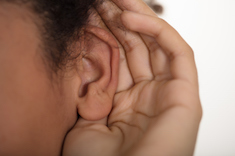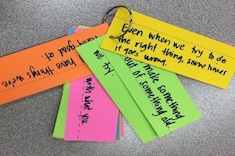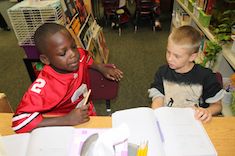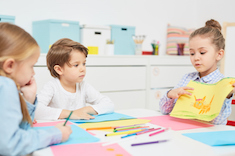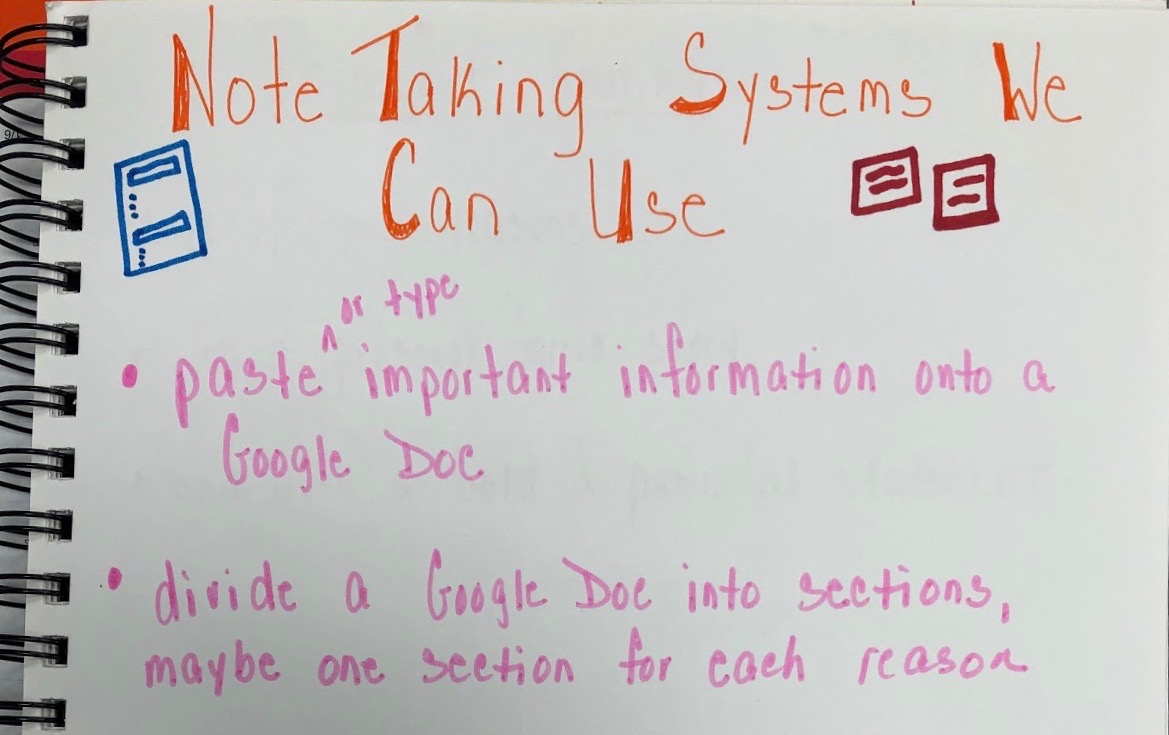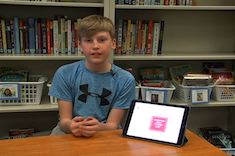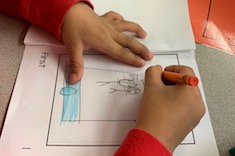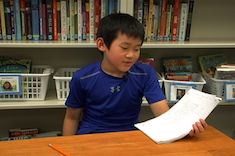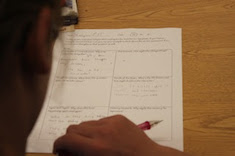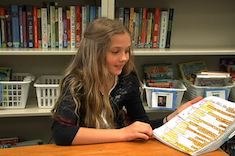Library
Choice Literacy Articles & Videos
The Choice Literacy library contains over 3,000 articles and 900 videos from 150+ contributors. Classic Classroom and Literacy Leadership subscribers have access to the entire library. Content is updated continuously, with five to six new features published each week.
Latest Content
Read-Aloud Annotations: Google Docs for Questions
In this video series, Franki Sibberson’s fifth graders share their strategies for annotating the class read-aloud. In this installment, Lauren uses Google Docs to record questions to explore as she listens.
Helping Students Develop Conversational Identity
Jen Schwanke writes about the challenges of helping students develop conversational identities, providing prompts to help teachers reflect on their strengths and needs in fostering talk in classrooms.
Growing Talk About Reading
Tara Barnett and Kate Mills find that struggling readers in the early grades benefit from scaffolds and repeated practice in small groups. They share some of their favorite tools, including key ring prompts and anchor charts.
Read-Aloud Annotations: Expectation and Reality
In this video series, Franki Sibberson’s fifth graders share their strategies for annotating the class read-aloud. In this installment, Lizzie uses her notebook to focus on expectations and reality for characters, especially when it comes to stereotypes.
Talking Through Characters
Melanie Meehan shares activities that help students talk about their characters before writing about them in a realistic fiction unit.
Stepping Away from the Conversation
Jennifer Schwanke explains why sometimes the best thing teachers can do to foster better conversations in their classrooms is to step away and let the talk unfold among students.
May 31, 2019 Smart Enough to Know How Dumb I Am
We look at student note-taking in this week’s newsletter.
Summer Literacy
“What can I do to help my son and daughter stay sharp and not lose momentum during the summer?” When a parent asks this question, Mark Levine offers his Top Six Summer Slide Preventers.
Read Aloud Annotations: Using Google Slides to Focus
In this video series, Franki Sibberson’s fifth graders share their strategies for annotating the class read-aloud, In this installment, Reagan uses Google Slides to focus her thoughts and analyze different characters.
Student-Centered Notes
Dana Murphy discovers that what works for one student doesn’t work for another when it comes to note-taking. She provides options and then hosts a gallery walk so everyone can discover what works best for them.
May 24, 2019 Yets
We consider ways to be more inclusive in this week’s newsletter.
Read-Aloud Annotations: Thoughts to Themes
In this video series, Franki Sibberson’s fifth graders share their strategies for annotating the class read-aloud. In this installment, Stone uses Google Slides to record thoughts and tease out themes.
Becoming More Inclusive
Every teacher wants to be more inclusive. But where do you begin? Melanie Meehan presents three practical starting points.
Whose Point of View Matters? Considering Multiple Perspectives
When it comes to including and understanding others, it may be hardest to empathize with those who disrupt or bully others. Tammy Mulligan shares her four favorite mentor texts for understanding students who are angry and lash out.
May 17, 2019 Better To-Do Lists
We look at cleaning up and closing out the year in literacy in this week’s newsletter.
May 10, 2019 Moments That Matter
Telling stories is the focus of this week’s newsletter.
Read Aloud Annotations: Predictions
In this video series, Franki Sibberson’s fifth graders share their strategies for annotating the class read aloud. In this installment, Sharvari uses Google Slides with text boxes to record predictions and thinking.
Spring Cleaning
Jennifer Schwanke shares some quick tips for spring cleaning of classrooms and literacy supplies.
Fewer Books and More Options at the End of the Year
Cathy Mere considers the dilemma teachers face when the bookroom, library, and tech departments require books and devices to be returned late in the year . . . but there are still a few weeks of school. She shares many suggestions for fostering literacy and community when there are far fewer books in the room.
May 3, 2019 Buried Writing
We look at better ways to use notebooks in this week’s newsletter.
Key Elements of Short Stories
Gretchen Schroeder finds her students’ enthusiasm for writing short stories flags quickly without some instruction and guidance.
April 26, 2019 Neighborhood Grocery
We look at releasing responsibility for learning to students in this week’s newsletter.
Growing Toward Stories
Tara Barnett and Kate Mills use prompts and aids to help their youngest learners tell stories and find a writing voice.
Read Aloud Annotations: Characters and Intentions
In this video series, Franki Sibberson’s fifth graders share their strategies for annotating the class read aloud The Girl Who Drank the Moon. In this installment, Ben creates a graph in his notebook to record characters and intentions that are emerging in the story.
April 19, 2019 Step Back and Begin Again
We ponder how to keep assesssment in its place in this week’s newsletter.
Alternatives to Graphic Organizers
Dana Murphy is dismayed by the ways graphic organizers can sometimes limit student creativity. She uses writing notebooks and a few other strategies to begin to wean her fourth graders from depending too much on organizers.
Read-Aloud Annotations: Notebook Predictions
In this video series, Franki Sibberson’s fifth graders share their strategies for annotating the class read aloud, The Girl Who Drank the Moon. Students have their choice of using notebooks or tech devices, and can pick any strategy that helps them make sense of the story. In this installment, Hannah shares her notebook where she highlights the setting and characters, as well as makes predictions.
Writer’s Notebook Tweaks
Gretchen Schroeder analyzes the use of writing notebooks in her classroom, focusing on what’s confusing or frustrating for students. She makes some small changes that yield big results.
April 12, 2019 The Recipe Formula
We ponder how to keep assesssment in its place in this week’s newsletter.
April 5, 2019 Black Diamond
We explore grouping in grades 3-5 in this week’s newsletter.
Browse Content By
Type
Category
- Assessment Tools
- Big Fresh Archives
- Booklists
- Choice Numeracy
- Classroom Design
- Common Core
- Community Building
- Conferring
- Content Literacy
- Digital Literacy
- English Language Learners
- Equity
- Family Relations
- Free Samples
- Guiding Groups
- Leadership
- Literacy Coaches
- Mentor Texts
- Minilessons
- New Teacher Mentors
- Podcasts
- Poetry
- Quote Collections
- Reading Strategies
- Self Care
- Struggling and Striving Learners
- Talking and Listening
- Teacher Study Groups
- Teaching Reading
- Teaching Writing
- Word Study and Vocabulary
Author
- Melissa Quimby
- Nawal Qarooni
- Gwen Blumberg
- Julie Cox
- The Lead Learners
- Hannah Tills
- Josie Stewart
- Ruth Metcalfe
- Mallory Messenger
- Becca Burk
- Jodie Bailey
- Vivian Chen
- Mary Brower
- Tiffany Abbott Fuller
- Stephanie Affinito
- Ruth Ayres
- Leigh Anne Eck
- Heather Fisher
- Shari Frost
- Julie Johnson
- Suzy Kaback
- Gigi McAllister
- Shirl McPhillips
- Melanie Meehan
- Cathy Mere
- Debbie Miller
- Tara Barnett and Kate Mills
- Tammy Mulligan
- Dana Murphy
- Bitsy Parks
- David Pittman
- Brenda Power
- Heather Rader
- Matt Renwick
- Mandy Robek
- Christy Rush-Levine
- Gretchen Schroeder
- Jen Schwanke
- Brian Sepe
- Katherine Sokolowski
- Stella Villalba
- Jennifer Vincent
Grade Level
Choice Literacy Membership
Articles
Get full access to all Choice Literacy article content
Videos
Get full access to all Choice Literacy video content
Courses
Access Choice Literacy course curriculum and training


